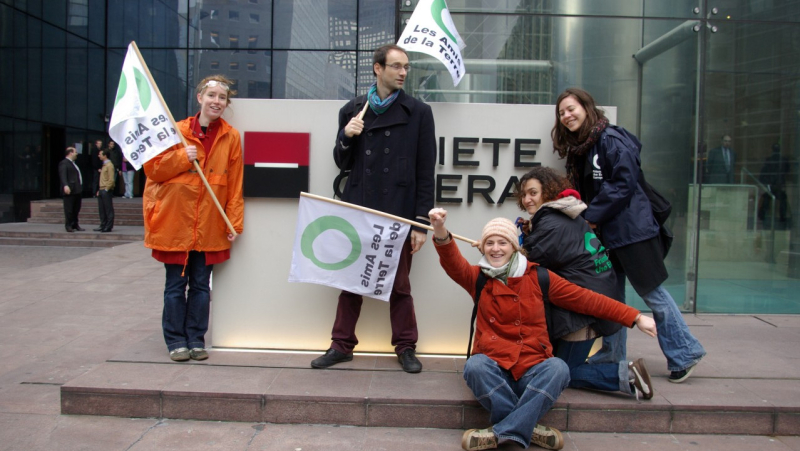Société Générale: an approach to be completed to stop the development of fossils fuels

Société Générale just announced plans to reduce oil and gas exposure 10% by 2025.
1. This commitment relates only to the bank’s loans and automatically overlooks a large part of the financial services provided to the oil and gas sector, starting with equity and bond issues.
According to the financial data we have access to on big banks’ support for fossil fuels, oil and gas/fossil fuel companies depend on loans as on share and bond issues to raise capital (see the Banking on Climate Change Report).
2. Exposure, which measures stocks rather than flows, is not the most relevant indicator in a climate emergency context where radical changes need to be made in the direction of financial flows to the energy sector.
A study conducted by the Rainforest Action Network found that some major US banks increased their financing to the 50 largest coal producers after committing to reduce their exposure to the sector.
Société Général had already followed this approach in 2016 by committing to reduce its exposure to coal production by 14% by the end of 2020. This did not prevent it from maintaining and even increasing its financing to some of the largest coal producers such as Glencore or SUEK. Société Générale’s financing to the 30 largest coal mining companies even more than doubled between 2016 and 2017, from USD 104 million in 2016 to USD 261 million in 2017, before falling to USD 60 million in 2018 and rebounding to USD 152 million in 2019.
3. Finally, it should be remembered that the commitment made by Société Générale relates only to the production of hydrocarbons and neglects a large part of the sector as a whole, i.e., transport and transformation activities.
The inconsistency is flagrant when Société Général is financing transport infrastructure essential for the opening up of new fossil fuel reserves upstream of the chain. This is the case, for example, of the shale gas export terminals in the United States, where it is one of the world’s leading financiers with USD 4.6 billion of financing to the sector between 2016 and 2019.
4. Société Générale states that it has decided to stop financing onshore oil and gas extraction in the United States. Société Général does not provide further details. According to the international financial database IJGlobal, there has been no direct project financing for oil and gas extraction in the United States since 2015. To cover the risks related to production but especially to the development of new hydrocarbon reserves in the United States, Société Général will have to exclude companies active in this sector, including those diversified and exposed to other activities companies planning new investments in this sector.
5. Société Général declares more widely to aim to align its activities with the IEA’s Sustainable Development Scenario (SDS), which is notoriously insufficient to align the bank’s activities on a 1.5°C trajectory.
For Yann Louvel, political analyst for Reclaim Finance:
“As partial as it is partial, the oil and gas exposure indicator used by Société Générale does not automatically imply a decrease in its financing to the sector. If Société Générale wants to play a leadership role in the energy transition, as it claims, it must immediately exclude all companies in the riskiest sectors, starting with those developing new projects”.
